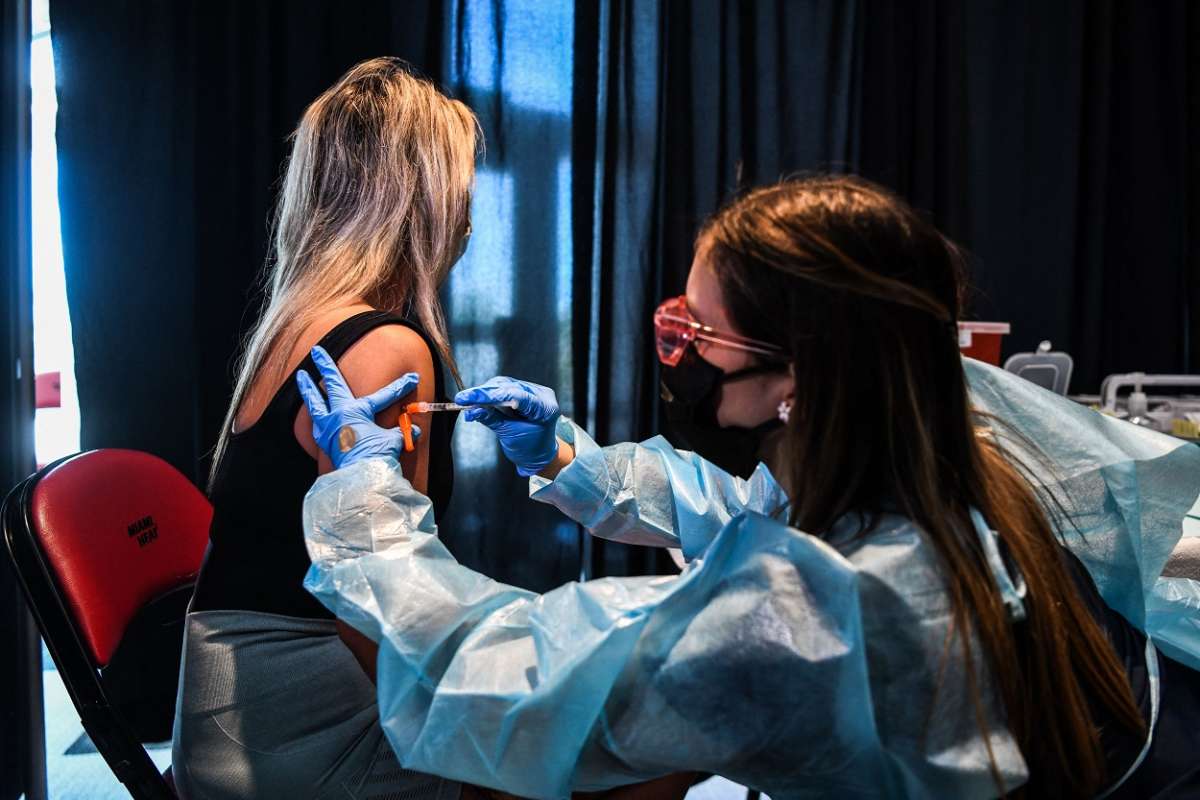Truthout is a vital news source and a living history of political struggle. If you think our work is valuable, support us with a donation of any size.
Health officials within the Biden administration are expected to announce as soon as this week that an extra “booster” shot may be needed to help individuals stay protected against the coronavirus. The additional round of vaccinations would likely begin after the Food and Drug Administration (FDA) gives full authorization to the immunizations.
Booster shots will be recommended for Pfizer-BioNTech and Moderna vaccines eight months after a person received their second round of those vaccines. A second shot of the Johnson & Johnson vaccine is also likely to be recommended if it’s found to be effective following the examination of results from a two-dose clinical trial of that vaccine.
Although official recommendation for the booster shot will likely happen sometime soon, the administration of those boosters won’t happen until September at the earliest, which is when the FDA is expected to give full authorization for all three vaccines. Healthcare workers, nursing home residents and emergency response personnel will likely be the first to receive their boosters.
Federal health officials have been questioning for weeks whether additional doses of the vaccines would be needed to increase protection levels for individuals against COVID-19. Much of the evidence in favor of booster shots comes from examination of data coming out of Israel, The Associated Press reported, as that country administered Pfizer-BioNTech vaccines earlier than the U.S. Preliminary studies from Israel have found that those who were vaccinated in January saw protection levels drop somewhat after some time.
According to The Washington Post, the conclusion about boosters was reached after “intense discussions” last weekend by high-ranking federal health officials who scrutinized the data on the effectiveness of the vaccines. This decision about boosters marks a dramatic shift from what officials were saying just last month.
A July statement from the FDA and the Centers for Disease Control and Prevention (CDC) said that data suggested “Americans who have been fully vaccinated do not need a booster shot.” But this month, federal officials, including chief White House medical adviser Anthony Fauci, began saying that boosters were “likely” to be needed. And last week, the FDA authorized an additional dose of the vaccines for individuals who are immunocompromised.
The struggle to get as many people vaccinated as possible remains a vexing challenge, as many Americans are still skeptical of doing so in spite of mountains of evidence showing the vaccines to be safe and effective. Just slightly more than half (50.4 percent) of the U.S. population is fully vaccinated, while around 6 in 10 Americans (59.2 percent) have received at least one dose of a coronavirus vaccine.
Many experts agree, at a minimum, that 70 percent of the country’s population needs to be vaccinated in order to successfully quell the spread of the virus, while others say that number needs to be closer to 90 percent.
While it’s been a challenge to get a sizable number of the population to agree to get vaccinated, most who have been vaccinated already appear ready to get a booster shot. A Yahoo News/YouGov poll from July found that 62 percent of those who are vaccinated would get an extra dose of their respective vaccines if it were made available. Just 18 percent said they wouldn’t do so, while 20 percent said they weren’t sure.
Media that fights fascism
Truthout is funded almost entirely by readers — that’s why we can speak truth to power and cut against the mainstream narrative. But independent journalists at Truthout face mounting political repression under Trump.
We rely on your support to survive McCarthyist censorship. Please make a tax-deductible one-time or monthly donation.
